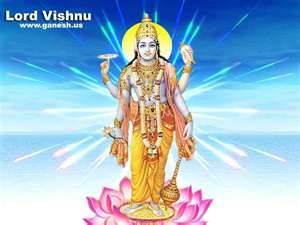Skandham-5. Chapter-1. Slokam- 15.
.jpg)
My dear Priyavrata, according to our association with different modes of material nature, the Supreme Personality of Godhead gives us our specific bodies and the happiness and distress we achieve. One must therefore remain situated as he is and be conducted by the Supreme Personality of Godhead, exactly as a blind man is led by a person who has eyes with which to see. By material means, one cannot avoid the happiness and distress unique to his particular body. There are 8,400,000 bodily forms, each destined to enjoy and suffer a certain amount of happiness and distress. This we cannot change, for the happiness and distress are ordained by the Supreme Personality of Godhead, in accordance with whose decision we have received our bodies. Since we cannot avoid the plan of the Supreme Godhead, we must agree to be directed by Him, just as a blind man is led by a person who has eyes. Under any circumstances, if we remain in the condition allotted to us by the Suprem...




.jpg)
